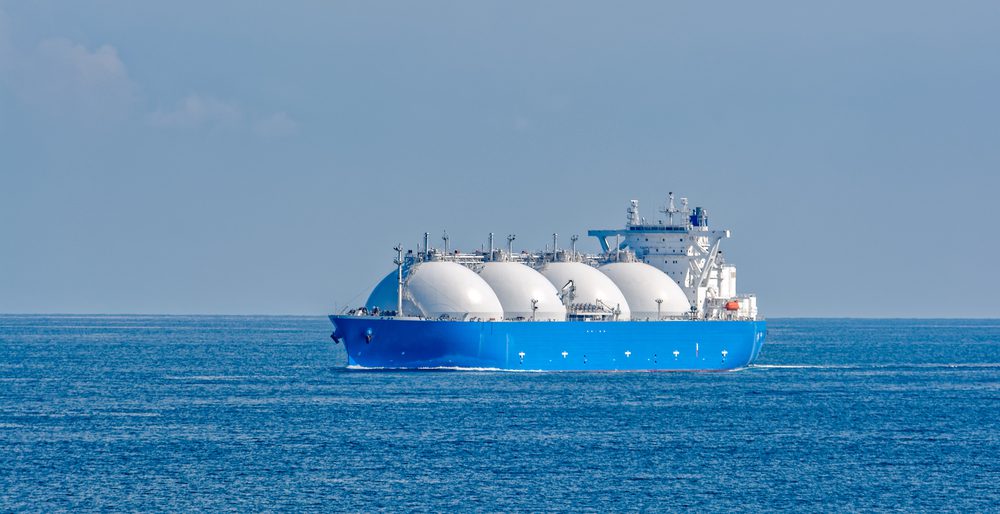Multiple New Attacks Reported in Southern Red Sea
The United Kingdom Maritime Trade Operations (UKMTO) office has reported three new attacks in the southern Red Sea, including two taking place on Monday. One of the vessels reported minor...


File Photo: Igor Grochev / Shutterstock


By Curtis Williams
HOUSTON, Oct 30 (Reuters) – U.S. Department of Energy reviews for liquefied natural gas (LNG) export permits have lengthened under President Joe Biden’s administration to 11 months or more, from seven weeks, according to government data.
The delay could mean nearly completed LNG projects may not being able to supply big European buyers because of a lack of the permit. Increasing LNG exports is opposed by some U.S. industries who fear it could raise domestic prices, while environmental groups have raised concerns about continued expansion of a fossil fuel industry.
Big swaths of U.S. industry – ranging from chemicals, steel, food and agriculture – oppose unrestricted exports of U.S. gas. Export permits represent the most significant limit thus far on an industry hoping to add 50% more to U.S. export capacity by 2026.
The average time for issuing an export license for supplying the superchilled gas to some of the biggest buyers of U.S. LNG, non-Free Trade Agreement (non-FTA) countries, has climbed under the Biden administration to over 330 days from 155 days under the Obama administration and 49 days under the Trump administration, according to DOE data.
One project, Commonwealth LNG, has been waiting a year after receiving its environmental approval for a permit. Its Cameron, Louisiana, project hopes to start construction in the third quarter of next year with preliminary deals for the sale of 5 million metric tons per annum (MTPA), mainly to non-FTA countries.
Commonwealth LNG did not immediately reply to requests for comment.
New Fortress Energy filed 11 months ago for a non-FTA authorization for its Altamira FLNG facility, which is near to starting production. But the 1.4 MTPA project will be unable to sell its gas to countries including the Netherlands, U.K., France, Spain and Germany.
New Fortress did not immediately respond to a request for comment.
“We now on average, wait about 500 days for an LNG export authorization,” said Dan Brouillette, former president of Sempra’s LNG development unit and president-elect of utility lobby group, Edison Electric Institute. His measure is larger than Reuters average count for companies that have the required environmental approval in hand.
A DOE spokesperson said the agency would not comment on specific projects, but said it considers more than environmental approvals in its non-FTA decisions. It has approved non-FTA authorizations for projects representing almost 45% of the about 103 billion cubic feet per day production of domestic dry gas, the spokesperson said.
“There are many factors that can affect the amount of time the U.S. Department of Energy (DOE) needs to review an application, including the issues raised by interveners in any specific proceeding,” the spokesperson said.
Non-FTA countries are the biggest buyers of U.S. LNG, but the Biden administration’s DOE has slowed decisions for economic, political and environmental reasons, says Alex Munton, an LNG analyst at energy consultancy, Rapidan Group.
The DOE “is evidently sitting on decisions because of politics,” he said. “Without these permits, projects cannot move forward. We’re heading toward 2024 elections and the Biden administration is keenly aware of the potential for a political backlash.”
(Reporting by Curtis Williams in Houston and Valerie Volcovici in Washington; Editing by David Gregorio)
(c) Copyright Thomson Reuters 2023.Join the gCaptain Club for curated content, insider opinions, and vibrant community discussions.


Join the 107,210 members that receive our newsletter.
Have a news tip? Let us know.
Access exclusive insights, engage in vibrant discussions, and gain perspectives from our CEO.
Sign Up




Maritime and offshore news trusted by our 107,210 members delivered daily straight to your inbox.



Essential news coupled with the finest maritime content sourced from across the globe.
Sign Up